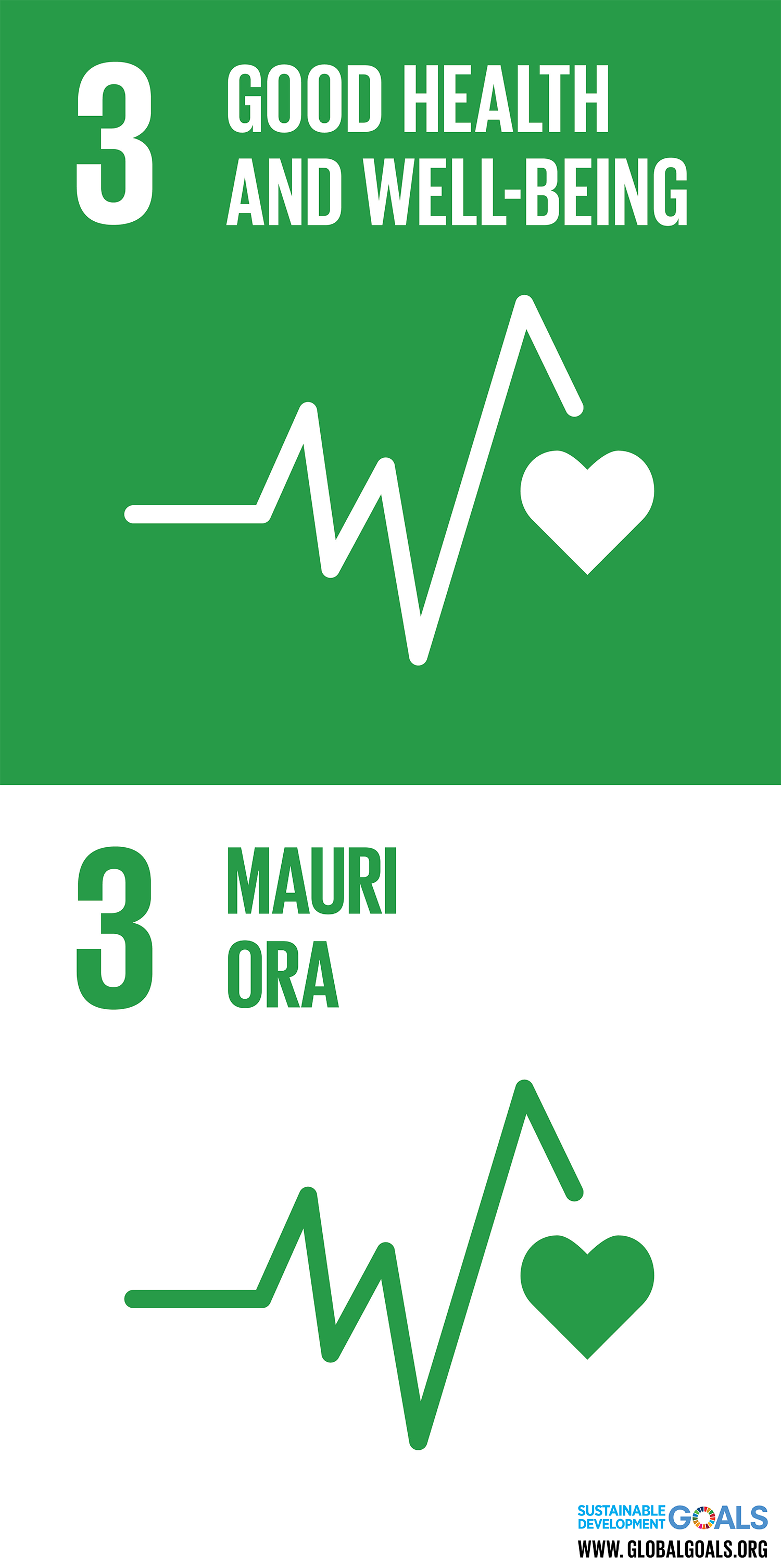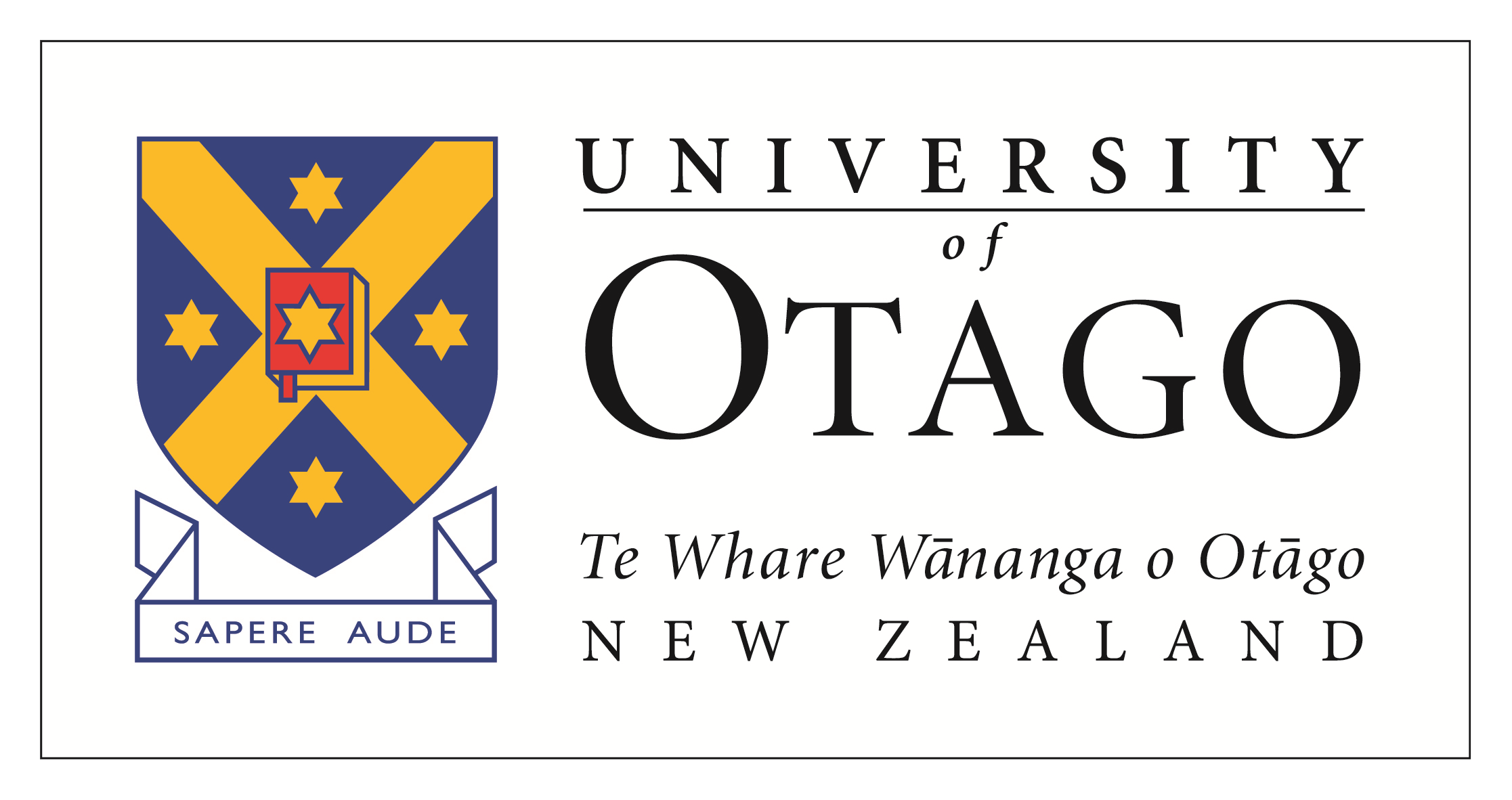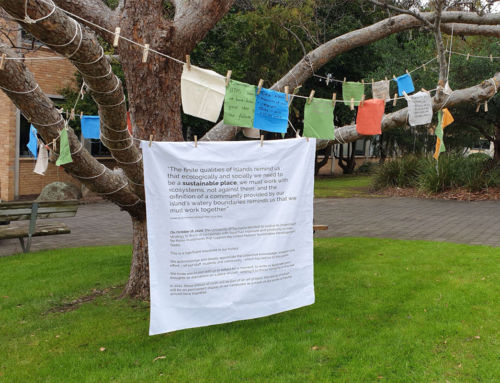Mindful Mondays at residential colleges
In 2020, our 11 University-owned residential colleges for students transitioned to meat-free catering on Mondays. These “Mindful Mondays” sought to raise students’ awareness of the impact of food consumption on greenhouse gas emissions, along with nutrition, physical and mental health.
University public health academics estimate residents going meat-free for one day a week leads to an 11 per cent reduction in emissions from food purchasing across our Univeristy, equivalent to a reduction from our 2019 levels of 500 tonnes CO2-equivalent annually (NB: 11% of 4,503 tCO2-e in 2019 = 495 tCO2-e).
The September 2020 transition was not without opposition, coming close on the heels of the COVID-19 lockdown and with catering expectations already established. But detractors appear to be in the minority in 2021, with new residents embracing starting each week mindfully, powered by low carbon, high nutrition meals.
Our University now has a strong platform for further innovation to reduce food-related emissions at our colleges and campuses.
> The initiative
In early 2020, catering staff at one of our residential colleges decided to provide fully meat-free meals on Mondays as part of their entry in our University of Otago’s annual Green Your Scene programme. The driver was concern about the greenhouse gas emissions from red meat, so going meat-free for one day was seen as a manageable but tangible step in addressing this.
In mid-2020, senior management in our Operations Group and Campus and Collegiate Life Services Division encouraged all 11 University-owned residential colleges (providing accommodation for about 2,600 students) to adopt this practice. It was rebranded Mindful Mondays so the act of mindful consumption was emphasised, and to allow for broader interpretations related to wellbeing, particularly mental health.
The menu change did not occur without opposition, coming close on the heels of the COVID-19 lockdown and with catering expectations for the year already established. The hardest challenge was probably keeping some males who have been brought up eating meat at every meal satisfied. Kitchen staff found it helpful to have Monday menus that provided familiar favourites which just happen to be meat-free (think: beany nachos, macaroni cheese, vegetable pizzas and stews). We also ran a workshop for catering staff so that they all had a shared understanding of climate change and why we were changing, With a new cohort of residents in the primarily first-year accommodation in 2021, positive comments are now far more common than negative ones.
Work by academics in the University’s Division of Health Sciences Department of Preventive and Social Medicine had previously assessed the greenhouse gas emissions of the average Kiwi diet. These academics estimate the impact of going meat-free for one day a week reduces weekly emissions by 11 per cent. In our University’s 2019 Greenhouse Gas Inventory, emissions from food served at residential colleges – was 4,503 tCO2-equivalent, meaning the impact of Mindful Mondays is a reduction of about 500 tCO2-equivalent, which is about equal to taking 133 cars off the road.
Our Dunedin campus food outlets also had a form of Mindful Mondays during Sustainability Week 2021, with some cafés subsequently increasing vegetarian and vegan options to reduce their carbon footprint.
College kitchens are working together to share popular meat-free dishes and actively provide more delicious, non-meat, low carbon offerings throughout the week to further reduce emissions. Other practices that have been introduced in college kitchens to reduce waste and emissions include:
- reducing the food waste produced while preparing meals
- removing food trays from dining areas, which reduced the use of power and chemicals for cleaning and aims to encourage students to take only the amount they can eat
- promoting seconds, so that no one feels the need to overload their plate as they can always get more later
- reducing the use of clingfilm by purchasing reusable lids.
The next steps on this emissions-reduction journey will build from this strong base and be informed by our food ordering system which will soon let chefs know the carbon emissions of each ingredient and recipe – information that can also be shared with students. This new approach will also improve the timeliness of our University’s greenhouse gas reporting.
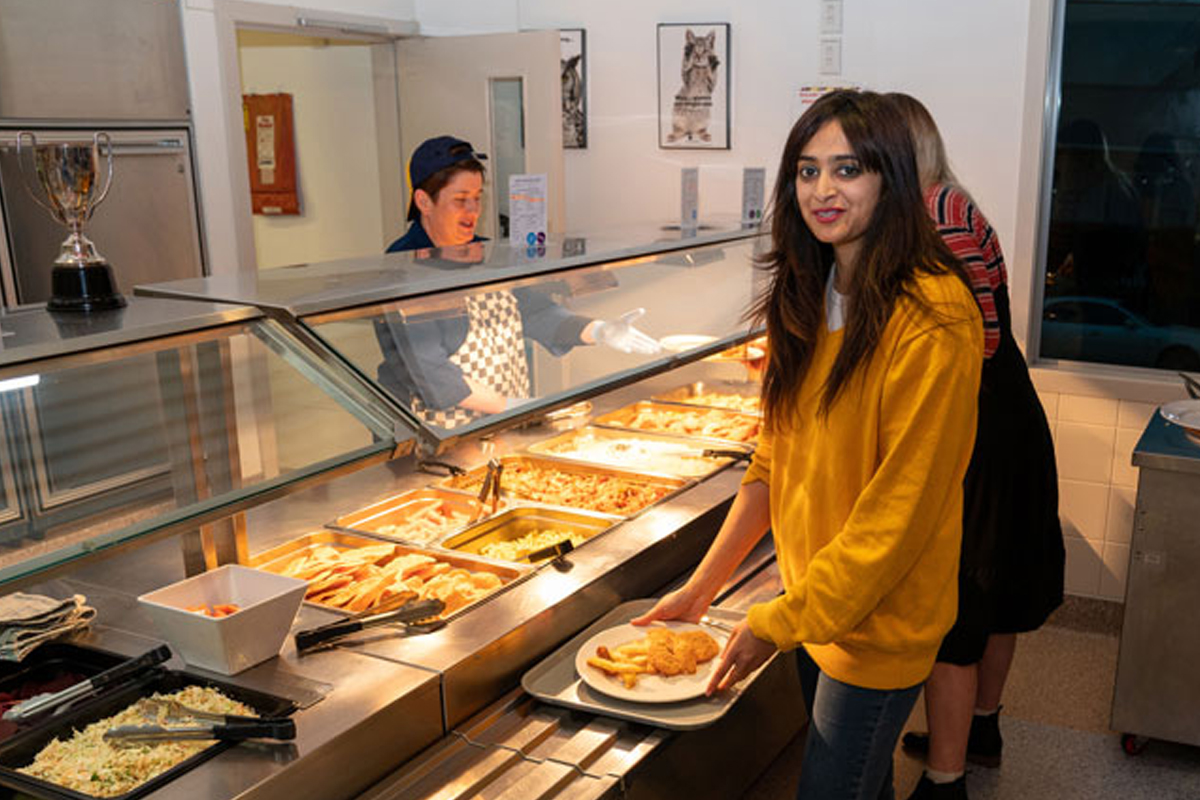
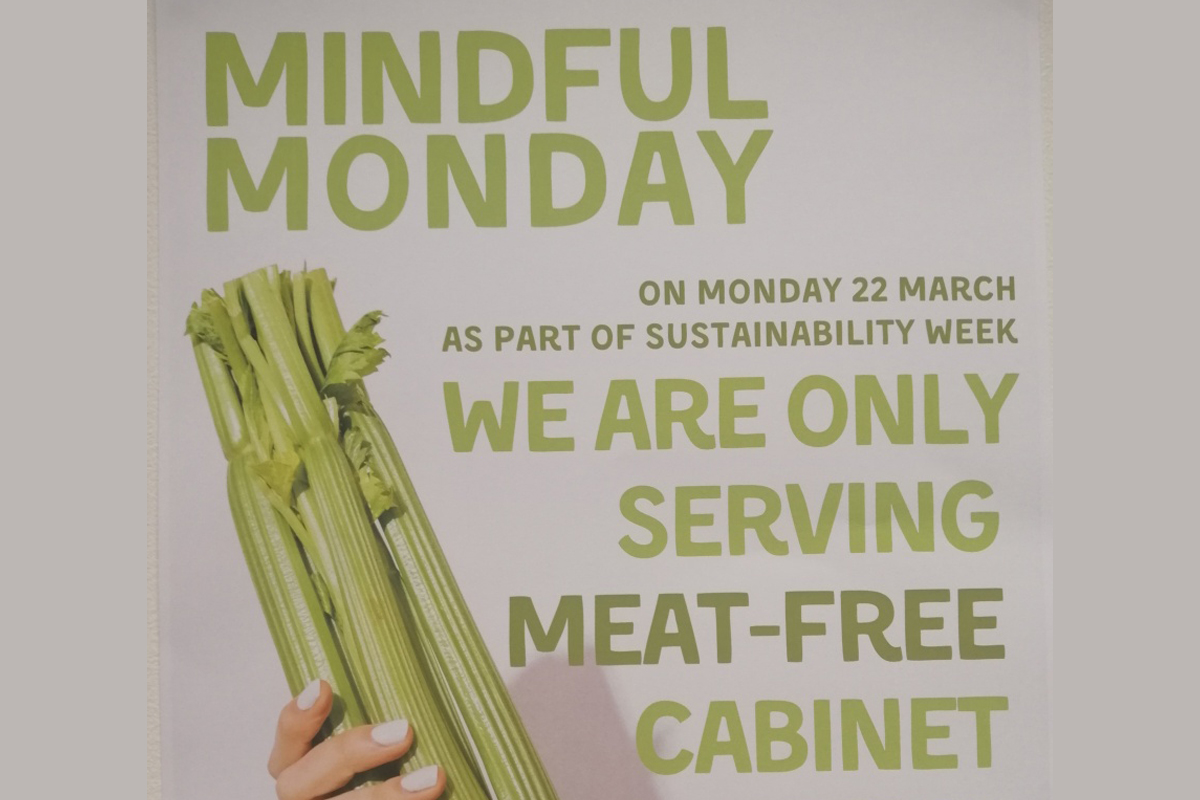
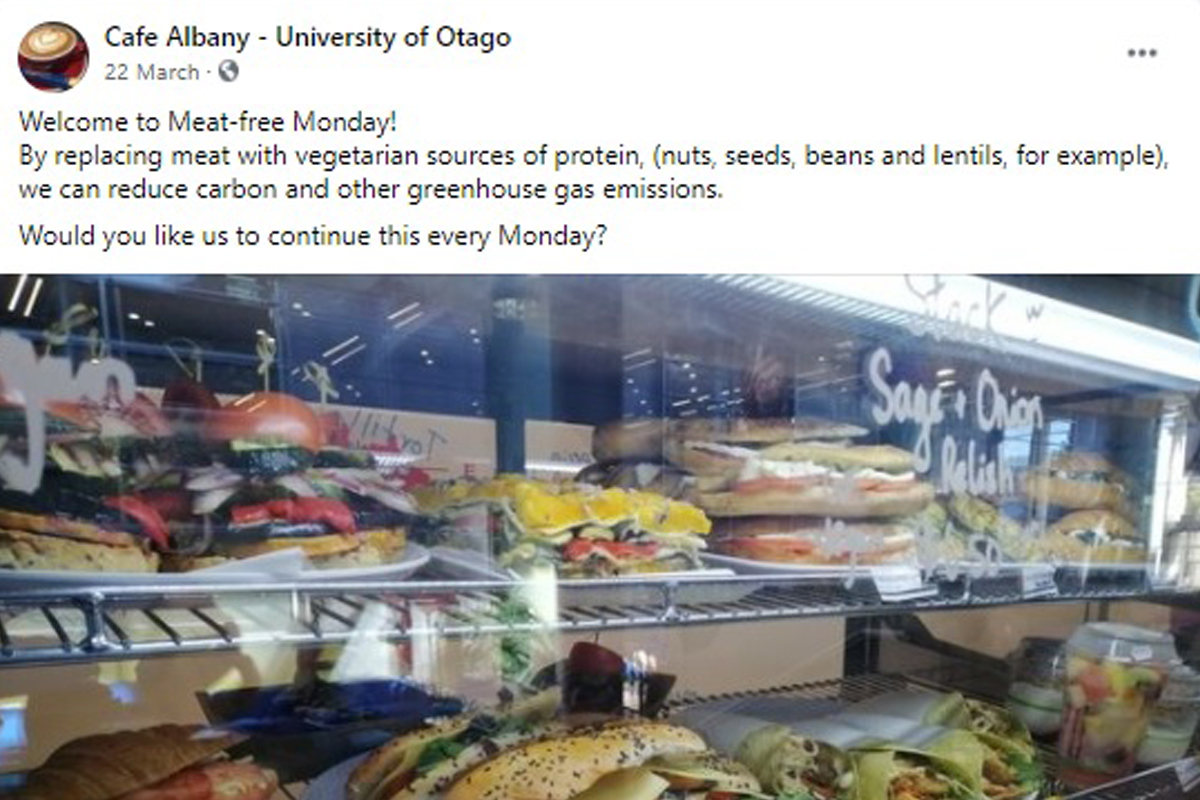
> Environmental and social benefits
The environmental benefits were about 500 tCO2-equivalents less being emitted annually as a result of changing catering on Mondays, with greater reductions expected as we build off this strong platform of having normalised delicious, nutritious non-meat meals.
The health benefits included reducing red meat consumption (the New Zealand Heart Foundation, for example, notes that eating 100g/day of red meat increases the risk of heart disease and stroke by 10-20% and thus recommends eating less than 350g of red meat per week)and also the mental health aspect of encouraging mindfulness at the start of each week.
> Leadership and engagement
What started as a grassroots initiative at one college through our Green Your Scene programme was quickly rolled out to all University-owned residential colleges during a global pandemic academic year. It was a bold call, but a strong commitment to sustainability from leadership and great follow-through from all our college kitchens have embedded this practice and provided a great foundation for further emissions reductions.
> Wider societal impact
This initiative can be adopted and adapted by other providers of student residential accommodation, or food outlets on campus. We would be happy to share the lessons learned from our implementation journey with anyone interested in following suit.
Mindful Mondays is an example of our University seeking to lead New Zealand into a lower emissions future. For students, exposure to more sustainable ways of living is a core part of their learning from being here at Otago.

